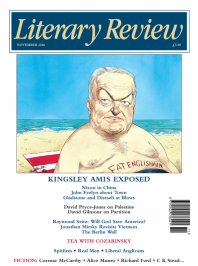Frank Fairfield
Fibs and Fantasy
The Nuremberg Interviews: Conversations with the Defendants and Witnesses
By Leon Goldensohn, edited by Robert Gellately
Pimlico 490pp £20
Nuremberg: Evil on Trial
By James Owen
Review 376pp £20
These two books mark the sixtieth anniversary of the Nuremberg tribunal, but with the trial of Saddam Hussein dragging on in Iraq they could hardly be more topical. The issue of the responsibility of leaders for the crimes of their regimes has, far from being buried with the crack of the last Nazi neck in the Nuremberg noose, arisen again in Rwanda, Bosnia, and now in Iraq.
The Nuremberg trials established the principles of modern international human-rights law, introducing such novel notions as 'war crimes' and 'crimes against humanity'. Considering their emblematic importance, it is extraordinary how casually they came about. The introductions to both books describe how the four Allies were divided until almost the last

Sign Up to our newsletter
Receive free articles, highlights from the archive, news, details of prizes, and much more.@Lit_Review
Follow Literary Review on Twitter
Twitter Feed
How to ruin a film - a short guide by @TWHodgkinson:
Thomas W Hodgkinson - There Was No Sorcerer
Thomas W Hodgkinson: There Was No Sorcerer - Box Office Poison: Hollywood’s Story in a Century of Flops by Tim Robey
literaryreview.co.uk
How to ruin a film - a short guide by @TWHodgkinson:
Thomas W Hodgkinson - There Was No Sorcerer
Thomas W Hodgkinson: There Was No Sorcerer - Box Office Poison: Hollywood’s Story in a Century of Flops by Tim Robey
literaryreview.co.uk
Give the gift that lasts all year with a subscription to Literary Review. Save up to 35% on the cover price when you visit us at https://literaryreview.co.uk/subscribe and enter the code 'XMAS24'